I am an MEng student at MIT, working with Armando Solar-Lezama in the Computer Assisted Programming Group and Joshua Tenenbaum in the Computational Cognitive Science Group. Currently, I explore the intersection of programming languages, artificial intelligence, and cognitive science, with the goal of developing more human-like AI systems. Specifically, I investigate the hypothesis that program synthesis may be a route to achieving this goal. I previously received my BS degrees in computer science and math.
Broadly, I am interested in the following areas: program synthesis, neuro-symbolic techniques, probabilistic programs, formal methods, and computational cognitive science.
Feel free to contact me at [first][last]@mit.edu.

Thesis (Ongoing)
For my thesis, I have been working on modeling the human ability to efficiently learn causal theories – explanations of which stimuli cause which changes in an environment – using program synthesis. For example, children can figure out the causal mechanism underlying a new toy or video game in just a few minutes, a feat woefully out of reach of modern AI systems. By representing a causal model as a program, we take advantage of two key features that standard ML models do not possess: programs' compact, interpretable form and data-efficient learning algorithms.
We have developed a simple domain to explore this hypothesis, consisting of Atari-style, time-varying grid worlds. We express causal mechanisms in these worlds using a functional reactive programming language called Autumn, which we designed to concisely capture these dynamics. Some Autumn programs are shown below. Our objective is to synthesize the underlying Autumn program given a short sequence of observed grid frames and user actions.
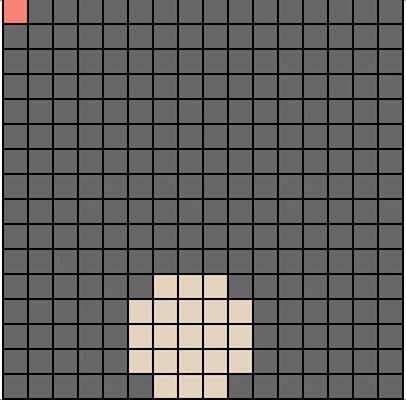
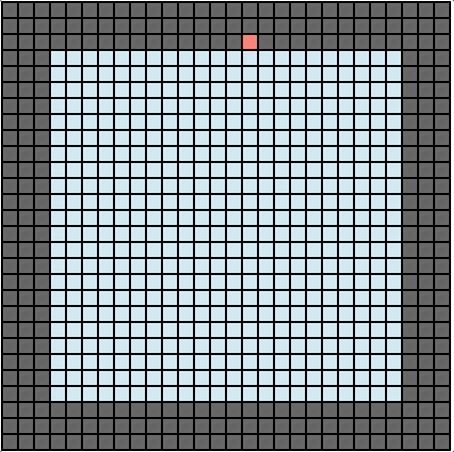
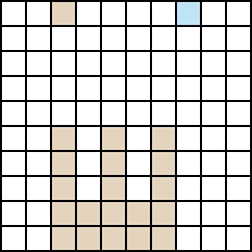
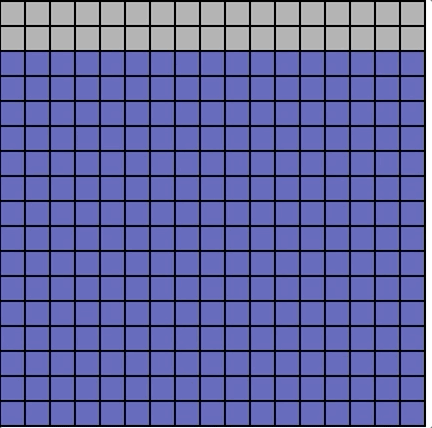
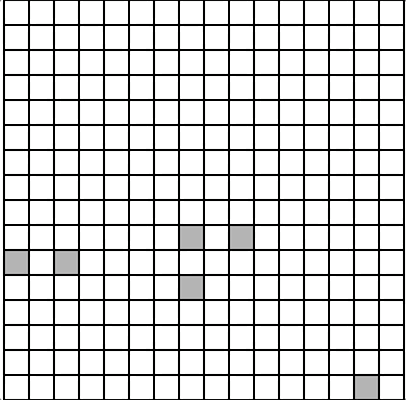

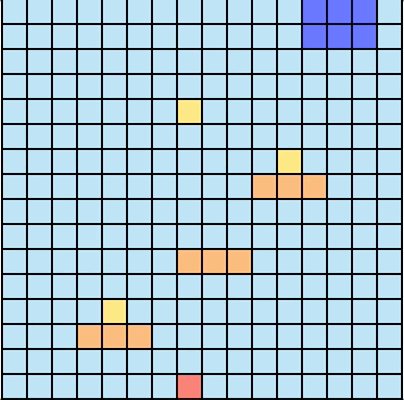
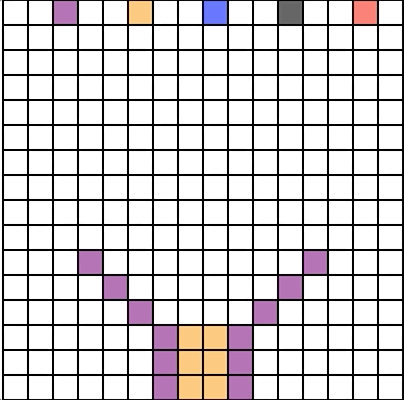
While the original motivation behind this project was to develop a proof-of-concept that program synthesis may be an effective model of causal theory induction, our progress has revealed an interesting story beyond this application. We currently synthesize Autumn programs by combining standard functional synthesis techniques with an automata synthesis approach, which discovers the time-varying latent state in the program. Uniting functional and automata learning in this way seems to apply beyond Autumn to the inductive synthesis of general functional reactive programs. Further, it aligns with the fact that humans perform both stateless (functional) and stateful (automata) reasoning when deriving explanations, suggesting our approach is a step in the right direction towards more human-like AI. Our work is still ongoing, but we are excited to develop these directions further, along with neuro-symbolic extensions.
For more information about this project, check out the workshop paper below. A more up-to-date manuscript is (hopefully!) coming soon to this website – stay tuned!
Publications
Ria Das, Joshua B. Tenenbaum, Armando Solar-Lezama, Zenna Tavares.
Synthesis of Reactive Programs with Structured Latent State.
Machine Learning and Causal
Inference Workshop (WHY-21) and Advances in Programming Languages and Neurosymbolic Systems Workshop (AIPLANS), NeurIPS 2021.
[paper, why21 poster, aiplans poster]
Samuel Goldman, Ria Das, Kevin K. Yang, Connor W. Coley.
Machine learning modeling of family wide enzyme-substrate specificity screens. In submission.
[paper]
Zenna Tavares, James Koppel, Xin Zhang, Ria Das, Armando Solar-Lezama.
A Language for Counterfactual Generative Models.
ICML 2021.
[paper, erratum]
Zenna Tavares, Ria Das, Elizabeth Weeks, Kate S. Lin, Joshua B. Tenenbaum, Armando Solar-Lezama.
Causal Inductive Synthesis Corpus.
Computer-Aided Programming Workshop, NeurIPS 2020.
[paper, poster]
Course Projects
A Projection-Based Asymmetric Similarity Measure for Distributional Semantic Models.
6.804 Computational Cognitive Science (Fall 2018) Final Project.
[paper]
Experiments in Automatic Gaze Estimation for the Lookit Developmental Research Platform.
6.869 Advances in Computer Vision (Fall 2019) Final Project. Co-author: Jack Cook.
[paper]